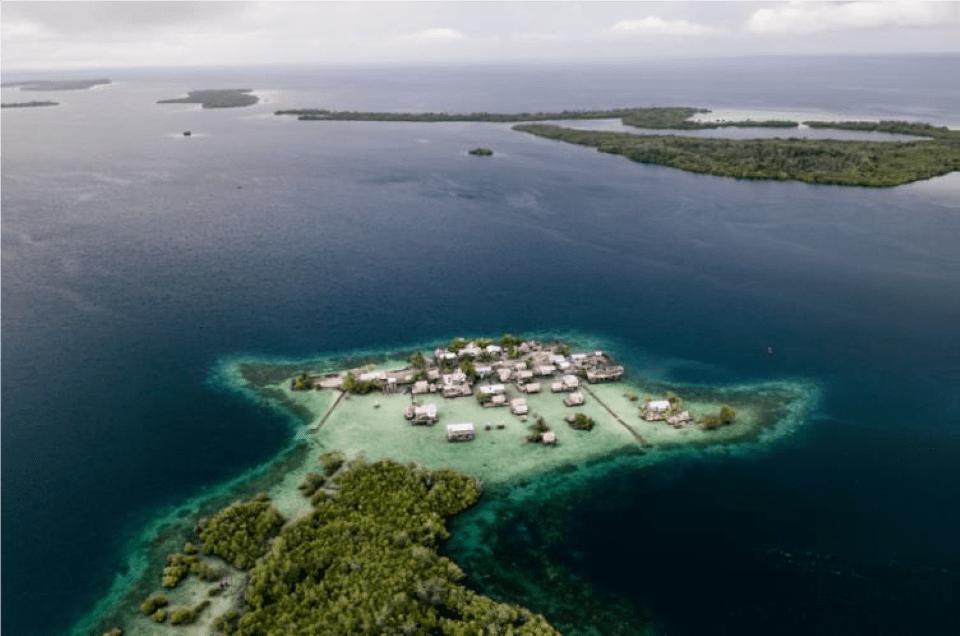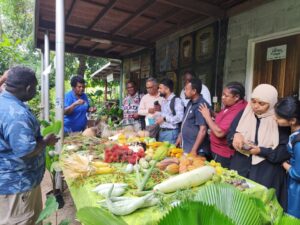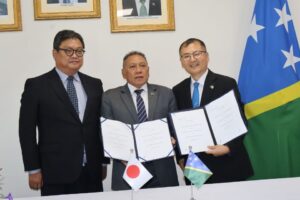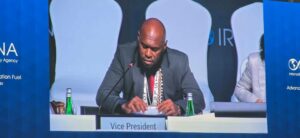Honiara, Solomon Islands – The Prime Minister of the Solomon Islands, Hon. Jeremiah Manele, has reinforced his leadership of the Melanesian Ocean Reserve (MOR) by committing resources to a Ministerial platform today on the margins of the 54th Pacific Islands Forum in Honiara.
The initiative is the world’s first Indigenous-led Ocean reserve and represents a bold new model for ocean governance that blends Indigenous knowledge, modern science, and regional political leadership.
The Reserve will operate across the Exclusive Economic Zones (EEZs) of the Solomon Islands, Papua New Guinea, Vanuatu, and New Caledonia, and when complete, is expected to span more than 6,000,000 square kilometres of ocean and islands–an area as vast as the Amazon rainforest. It will safeguard some of the most biologically rich and culturally diverse seas on Earth.
The intention to form the Reserve was announced earlier this year by Prime Minister Manele at the United Nations Oceans Conference in Nice, France, with the presence and support of ministers from Papua New Guinea, Vanuatu, and New Caledonia.
The Prime Minister said the Reserve redefines what ocean governance can look like and marks a turning point in history.
“Never before have countries united across entire EEZs to enshrine Indigenous governance, constitutional authority, and ancestral stewardship as the foundation of large-scale ocean protection,” he said. “The ocean has always been our garden, our market, and our home. Today, we take further steps toward making that truth the law.”
The establishment of a Ministerial Platform was announced to assist with advancing discussions with partner nations on the MOR Declaration and to engage with development partners for financial support.
It is a key development to ensure that the Reserve is not only declared but delivered, embedding Indigenous knowledge and authority at its core.
Minister for Fisheries and Marine Resources, Hon Bradley Tovosia, and Minister for Environment, Climate Change, Disaster Management and Meteorology Hon. Polycarp Paea also announced the Four Paddles — core programs that will propel the Reserve forward.
These include monitoring and managing the ocean, Indigenous-led investment in sustainable ocean economies, sustainable transport, and reconnection of island peoples and deepening knowledge through the integration of modern science with customary wisdom.
In his remarks during the update, Minister Polycarp Paea said, “We eat from and live in the ocean, but we have been retreating from it as other ways of life start to dominate. The MOR is a unifying approach that makes sense of the different ways of protecting our Ocean.
The paddle for knowing the ocean uses science and research to build from our existing ancestral knowledge, rather than replacing it.
“The transport and reconnection paddle will ensure that our people return to the ocean for transport and movement, filling it up with our life and our attention,” Minister Paea said.
Minister Bradley Tovosia described the significance of the Reserve as an organizing framework for realizing a sustainable ocean economy.
“The Melanesian Ocean Reserve is a framework to mainstream the ocean in our economic thinking. Through the ocean transparency paddle, we aim to observe our full ocean space, so we can see who is doing what, and leverage our population across the islands in monitoring and reporting. With the indigenous investment paddle, we look forward to our indigenous Solomon Islands becoming direct participants in the fisheries value chain, instead of being spectators.”
Led by the governments of the Solomon Islands, Papua New Guinea, and Vanuatu—and in partnership with the Islands Knowledge Institute (IKI) and Nia Tero—Pacific leaders will take the momentum to Climate Week in New York later this month to advance discussions with partners on financing these programs.
Source: Government Communication Unit




